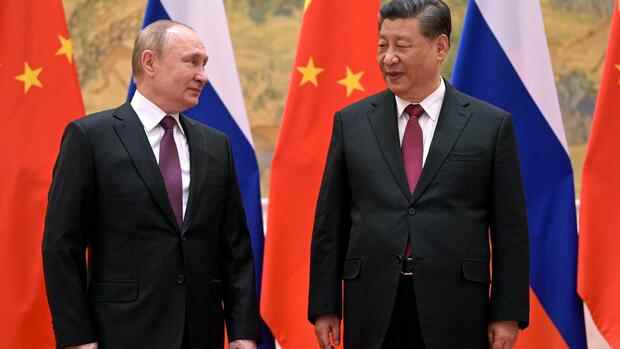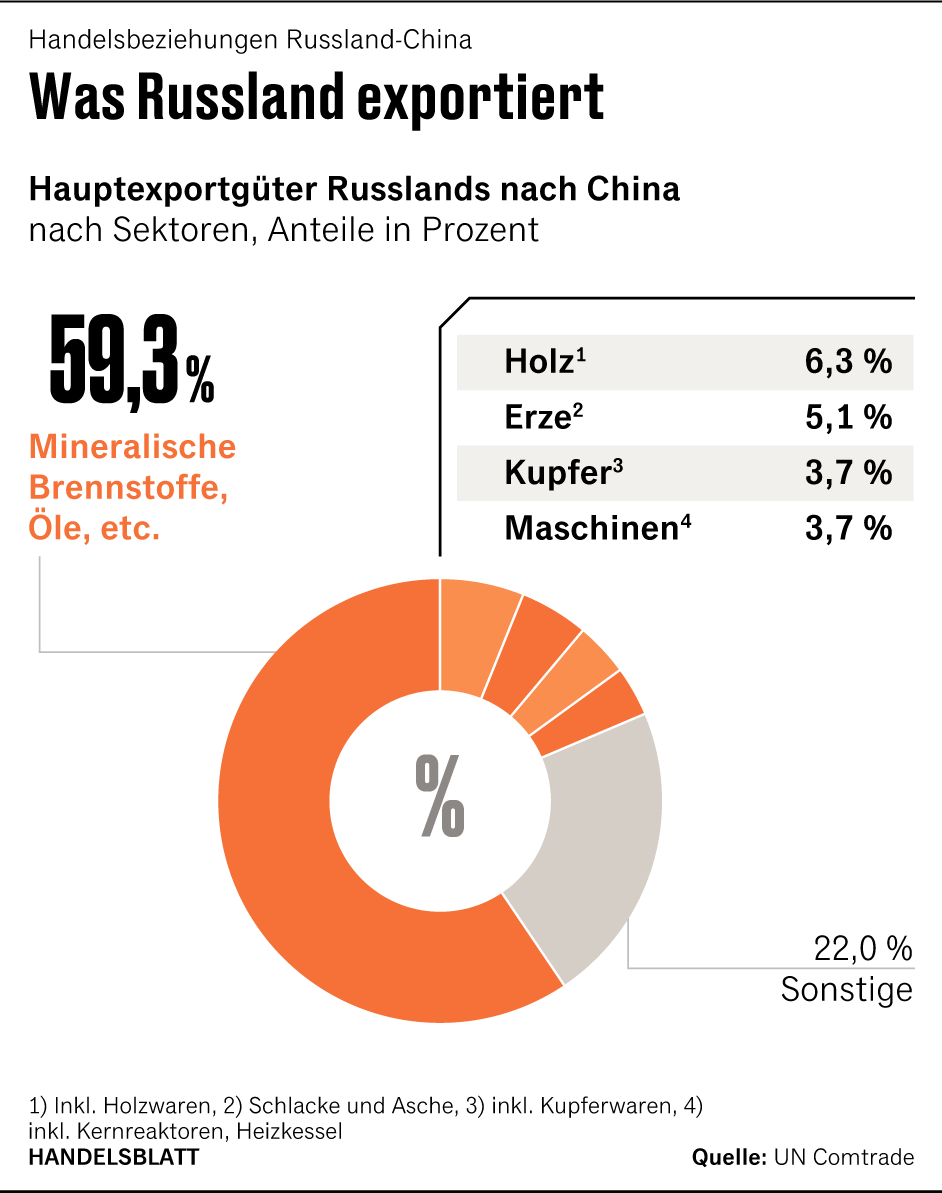Beijing It was less than three weeks ago that China’s head of state and party leader Xi Jinping and Russia’s President Vladimir Putin made a joint statement demonstratively showing solidarity against the West. On Tuesday, however, after Putin’s escalation of the Ukraine conflict, the Chinese government was more cautious.
In a phone conversation with US Secretary of State Antony Blinken, China’s Foreign Minister Wang Yi expressed “concern” about the latest developments. “Every country’s legitimate security concerns should be respected and the goals and principles of the UN Charter should be upheld,” Wang said, according to Chinese state media. He therefore appealed “to all parties to exercise restraint, to recognize the importance of implementing the principle of indivisibility of security, to de-escalate the situation and to resolve differences through dialogue and negotiations”. The Chinese leadership has never directly criticized Putin’s actions. However, a fervent promise of support to the Kremlin chief looks different.
In view of the Ukraine crisis, China is in what it regards as a difficult situation. Beijing wants to largely stay out of international conflicts – at least publicly – and not want to completely spoil things with either side, especially in the current Ukraine conflict.
Top jobs of the day
Find the best jobs now and
be notified by email.
In addition, the Chinese government insists at every opportunity that the sovereignty of states must be respected. She regularly accuses the US and other “foreign powers” of supporting “separatists” in Taiwan and China’s Hong Kong Special Administrative Region.
The verbal reaction to Putin’s actions was correspondingly cautious. At the emergency meeting of the UN Security Council on Tuesday, China called on “everyone involved” in the Ukraine crisis to exercise restraint. Any actions that could further fuel tensions must be avoided, said Chinese UN representative Zhang Jun. The government in Beijing welcomes and supports all efforts to find a diplomatic solution to the crisis.
Most recently, the Chinese government had sided even more clearly with the Russian side. On the day of the opening ceremony of the Olympic Games in Beijing in early February, Putin and Xi had practiced demonstratively closing ranks. Xi had pledged support to Putin in his fight against NATO expansion.
The two countries had also reached numerous economic agreements, which can be seen as anticipatory support in the likely event of sanctions against Russia.
The United States and the European Union announced penalties against Russia on Tuesday. Sanctions are to be imposed on 27 Russian individuals and institutions, with the EU targeting banks and the armaments sector. It is questionable to what extent Beijing now wants to support Moscow with economic sanctions and is even capable of doing so.
>>More on the topic: Together against the West
Cooperation with Russia is important for China, especially in view of their declared common enemy, the USA. But Beijing does not see Moscow as an equal, not least because of the enormous difference in economic importance, but rather as a junior partner. After all, China’s economy is around ten times larger than Russia’s.
China is Russia’s most important trading partner if you look at the individual countries. The resource-rich country conducts more than 18 percent of its trade with China. Conversely, however, it looks significantly different. Russia is just tenth among the largest trading partners of the People’s Republic.
Main imports from Russia are raw materials. The two countries want to significantly expand their trade relations and are planning 65 joint investment projects with a total value of 120 billion US dollars, as Putin announced earlier this month.
Xi and Putin publicly refer to each other as either “friends” or even “good friends.” And after all, the Kremlin boss was apparently friendly enough with Xi to wait for the end of the Olympic Games in Beijing before escalating the conflict.
But experts like Jakub Jakóbowski, senior fellow of the China program at the Center for Eastern Studies (OSW), a Warsaw-based think tank, say, “There is no real trust between China and Russia.”
According to a study by the OSW, the relationship is less an alliance between two states and more an alliance between two authoritarian regimes that defined their national interests in terms of maximizing their chances of survival. Both China and Russia feel threatened by successful democracies.
For China, however, the Ukraine conflict is interesting for another reason. “I am sure that China sees Russia and this invasion as a testing ground,” said OSW expert Jakóbowski. With a view to its own conflict with Taiwan, Beijing is keeping a very close eye on how Europe and the US react to Russia’s actions in Ukraine.
Beijing regards Taiwan as part of the People’s Republic of China and wants a “reunification” of the two territories. Taiwan was never part of the People’s Republic of China, which was founded in 1949.
Fears have grown in recent years that China could one day take over the country by force. Although the Chinese leadership also knows that the US has significantly greater security interests in relation to Taiwan, Beijing will nevertheless draw conclusions from the international reaction to an invasion of Ukraine and the violation of international law.
More: “Putin seems paranoid”: The West condemns the Russian President’s escalation in Ukraine

